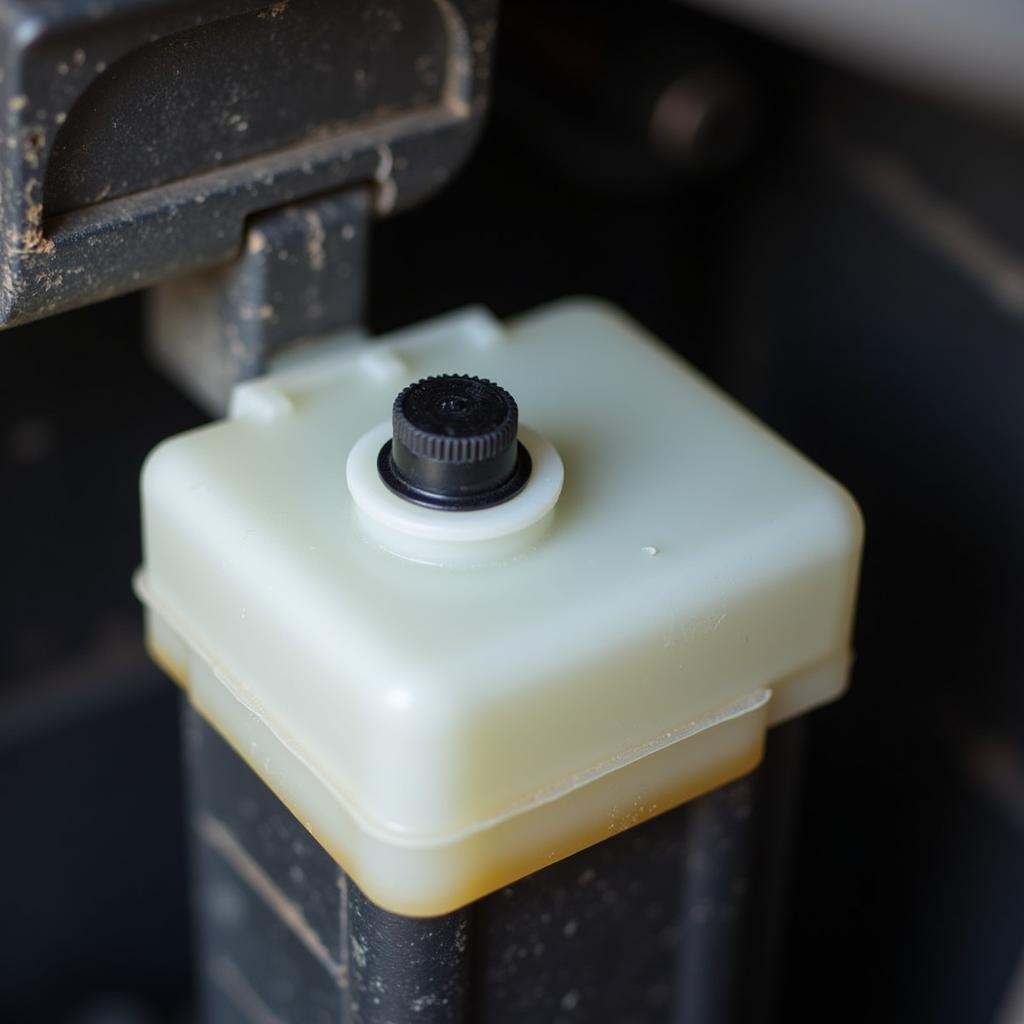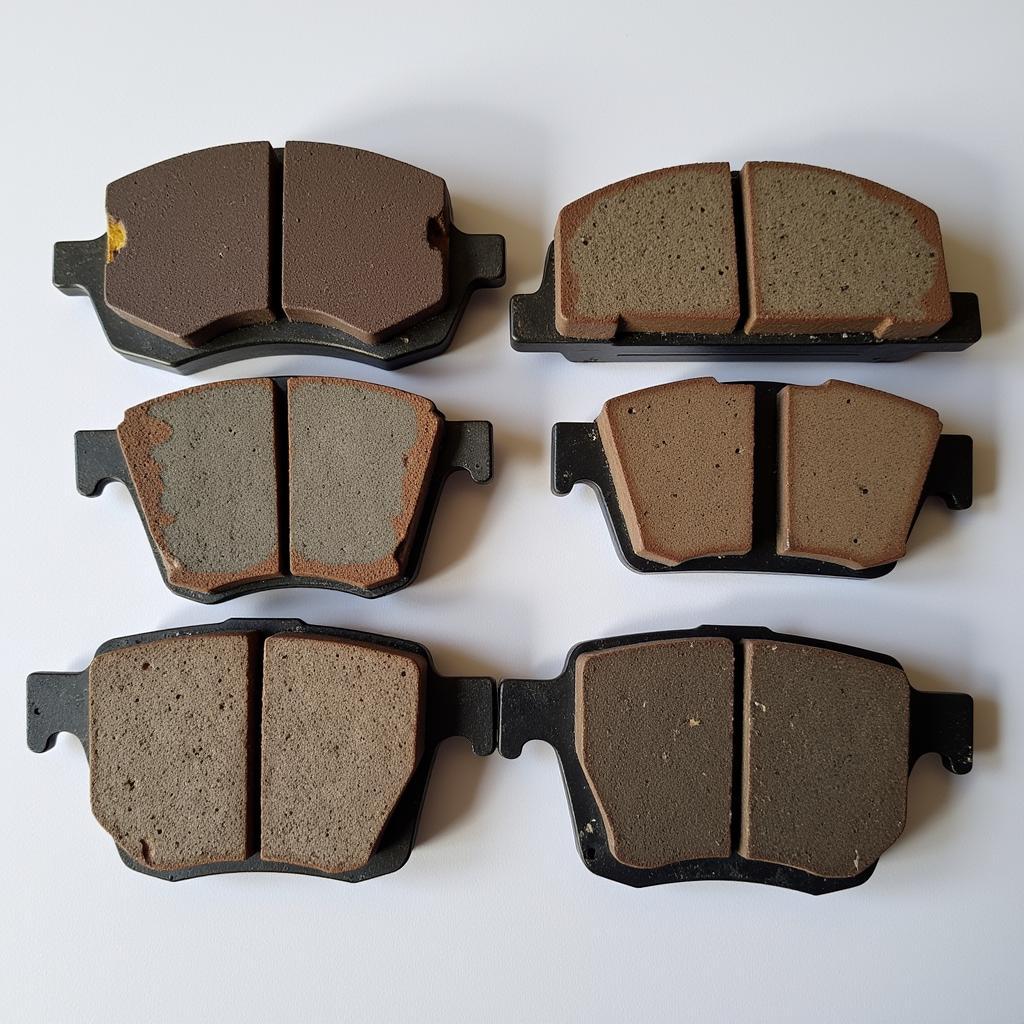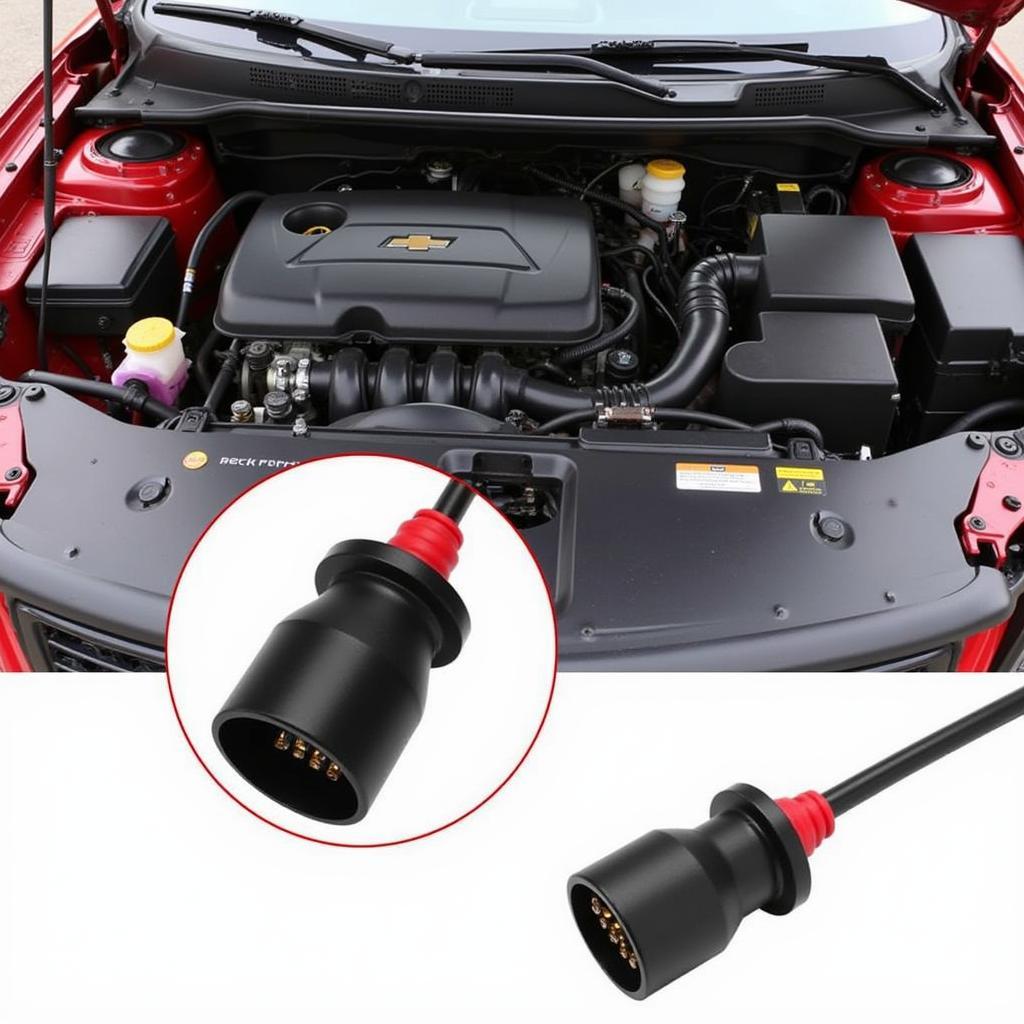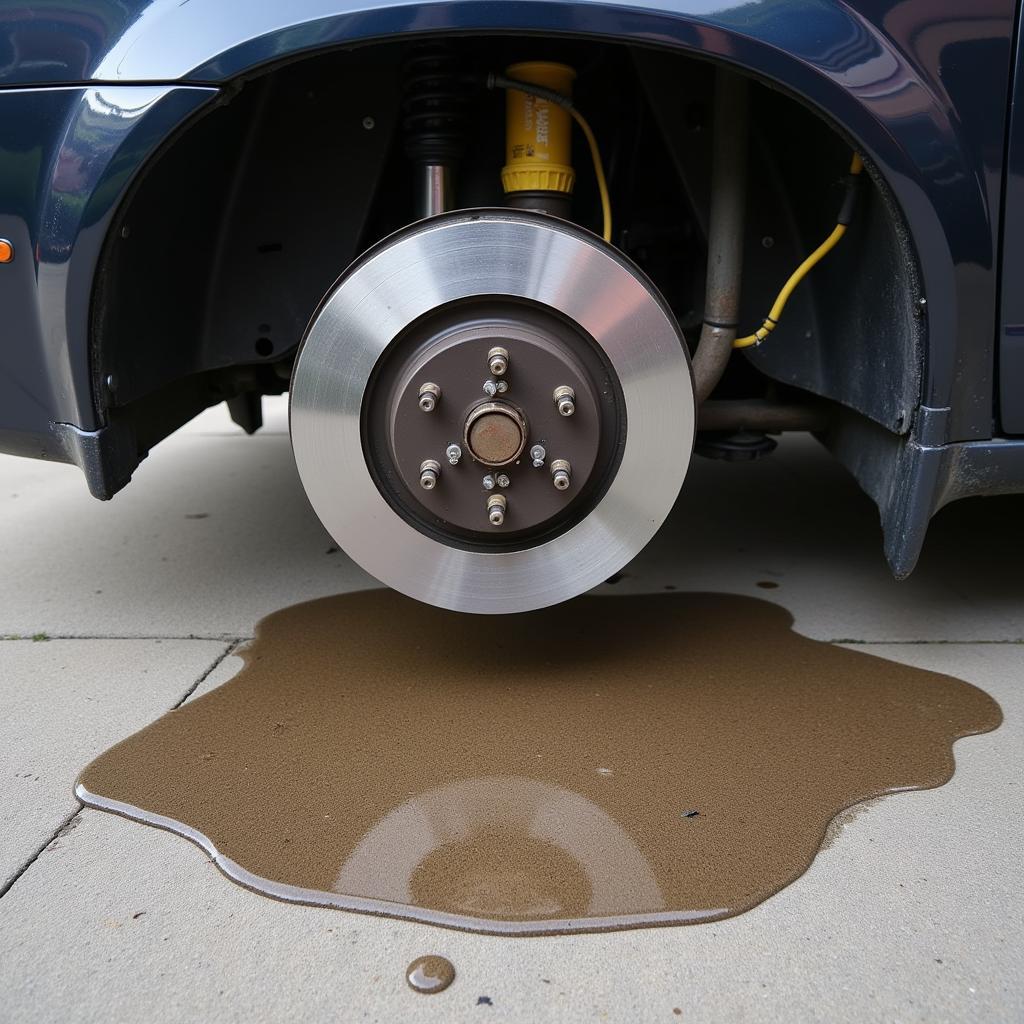Seeing a “brake fluid warning” light on your Chevy Cobalt’s dashboard is a nerve-wracking experience. This warning usually means there’s an issue with your car’s braking system, potentially putting you and your passengers at risk. But don’t panic just yet. This article will guide you through understanding what triggers this warning light and provide you with actionable steps to address it safely and effectively.
Understanding Your Chevy Cobalt’s Brake System
Before we delve into the warning light, it’s helpful to grasp how your Cobalt’s brake system works. It’s a sophisticated system that relies heavily on hydraulic pressure to function correctly:
- Brake Fluid: This specialized fluid acts as the lifeblood of the system, transmitting the force from your foot on the brake pedal to the brake pads, ultimately stopping your vehicle.
- Master Cylinder: This crucial component acts as the central hub, receiving the brake fluid and distributing it to the appropriate wheels when you press the brake pedal.
- Brake Lines: These metal tubes carry the pressurized brake fluid from the master cylinder to the calipers or wheel cylinders at each wheel.
- Calipers (Disc Brakes) & Wheel Cylinders (Drum Brakes): These components house the brake pads or shoes and, upon receiving pressurized brake fluid, push them against the rotors or drums to create the friction needed to stop the vehicle.
Common Causes of the “Brake Fluid Warning” Light
When the “brake fluid warning” light illuminates on your Chevy Cobalt’s dashboard, it typically points to one of the following issues:
1. Low Brake Fluid Level
This is the most common culprit behind the warning light. Over time, brake pads wear down, requiring more brake fluid to travel through the lines to engage the brakes fully. A leak in the brake lines, calipers, or wheel cylinders can also lead to a drop in brake fluid level.
 Chevy Cobalt Low Brake Fluid Level
Chevy Cobalt Low Brake Fluid Level
2. Worn-Out Brake Pads
As mentioned earlier, worn brake pads necessitate a larger volume of brake fluid to function effectively. If your brake pads are nearing the end of their lifespan, the brake fluid level in the reservoir might appear low, triggering the warning light.
 Worn Brake Pads on Chevy Cobalt
Worn Brake Pads on Chevy Cobalt
3. Faulty Brake Fluid Level Sensor
The brake fluid level sensor is responsible for monitoring the fluid level in the reservoir and alerting you if it falls below a safe threshold. Like any electrical component, this sensor can malfunction, triggering a false warning light even if the brake fluid level is adequate.
 Chevy Cobalt Brake Fluid Level Sensor
Chevy Cobalt Brake Fluid Level Sensor
4. Brake System Leak
A leak anywhere in the intricate network of brake lines, hoses, calipers, or wheel cylinders can lead to a significant loss of brake fluid, compromising your vehicle’s ability to stop safely.
 Brake Fluid Leak Under Chevy Cobalt
Brake Fluid Leak Under Chevy Cobalt
What to Do When the “Brake Fluid Warning” Light Turns On
-
Pull Over Safely: As soon as you notice the warning light, find a safe location to pull over and assess the situation. Continuing to drive with a compromised braking system can be extremely dangerous.
-
Check the Brake Fluid Level: With the engine off, locate the brake fluid reservoir under the hood. It’s usually a translucent plastic container with a black cap marked “Brake Fluid.” Visually inspect the fluid level. If it’s below the “Min” mark, you’ll need to add more brake fluid.
-
Add Brake Fluid (If Necessary): Only add brake fluid if you feel comfortable doing so and have the correct type for your Chevy Cobalt. Refer to your owner’s manual for the recommended brake fluid type.
Word of Caution from Mechanic Mike Jones: “Never mix different types of brake fluid. Using the wrong kind can damage your brake system. When in doubt, consult your owner’s manual or a trusted mechanic.”
-
Inspect for Leaks: Carefully examine the area around the master cylinder, brake lines, and calipers for any signs of leaks. Look for wet spots, drips, or puddles of brake fluid. If you detect a leak, do not attempt to drive the vehicle.
-
Seek Professional Help: If the brake fluid level is extremely low, you suspect a leak, or you’re uncomfortable performing these checks yourself, it’s crucial to contact a qualified mechanic immediately. Driving with a compromised braking system is extremely dangerous.
Preventing Future “Brake Fluid Warning” Lights
Regular maintenance is key to preventing future brake fluid warnings:
- Regular Brake Inspections: Have your brake system inspected by a qualified mechanic at least once a year or as recommended in your owner’s manual. They can identify potential issues early on.
- Timely Brake Pad Replacement: Don’t wait until your brake pads are completely worn down. Replace them according to the manufacturer’s recommendations or sooner if you notice any signs of wear.
- Address Leaks Promptly: Any leaks in your brake system should be addressed immediately by a professional mechanic to prevent further damage and ensure your safety.
By understanding the common causes of the “brake fluid warning” light and taking prompt action when it illuminates, you can maintain a safe and reliable driving experience in your Chevy Cobalt. Remember, your brakes are critical to your safety – never ignore this important warning!

